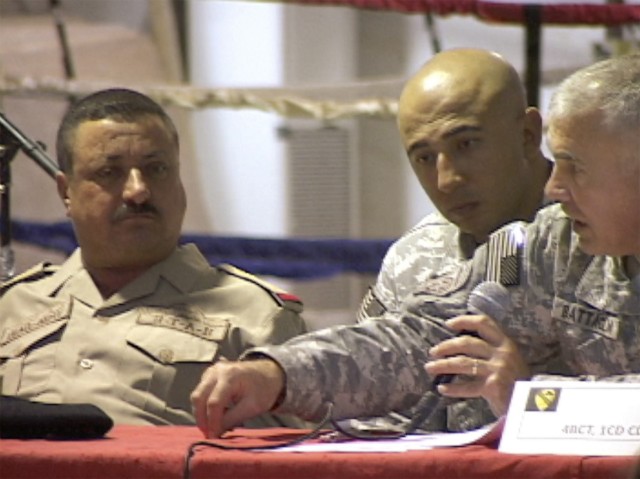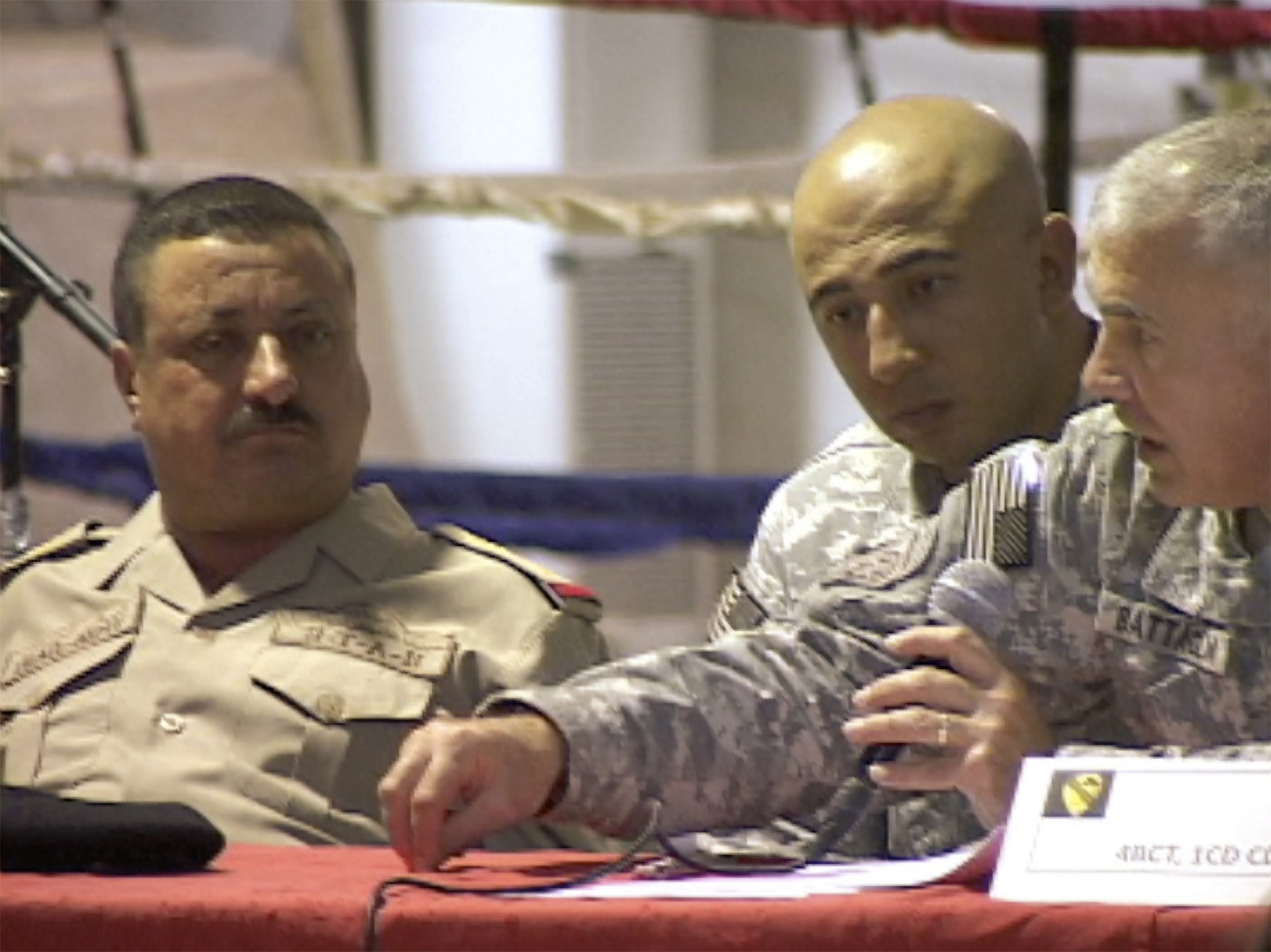TALLIL, Iraq - The 4th Brigade, 1st Cavalry Division sponsored a one-day logistics conference with the 10th Iraqi Army Division in Tallil Oct. 14.
During the conference, the 4th BCT, 1st Cav. Div. Commander Col. Philip Battaglia explained one of the goals of partnering with the Iraqis in the tri-province area of Muthanna, Dhi Qar and Maysan, is to increase their skill in logistics and maintenance.
Major General Habib Taleb Abbais Mousa al Husain, the 10th IA Div.'s commanding general, said his unit can benefit from the guidance provided by the Long Knife Brigade.
"We have a lot of problems in our division when it comes to maintenance and logistics, but whatever issues we face, we can fix them," Habib said. "We need to figure out how we can get the parts to help fix our broken equipment."
Habib and his Soldiers listened closely while Battaglia and the Long Knife staff showed how the 4th BCT keeps a handle on its equipment, maintenance and replacement parts.
The Long Knife leaders started with a demonstration of a maintenance meeting with the same graphics used during their regular meetings interspersed with explanations of why certain things take place.
Lieutenant Colonel Mark Simerly, commander of the Long Knife Brigade's 27th Brigade Support Battalion, defined how the U.S. Army keeps its gear ready for combat.
"We think there are three key things for a good maintenance program," said Simerly, a native of Lake Wales, Fla. "The ability to know where parts are in the supply system, our drivers and operators must be trained to conduct the maintenance checks on their vehicles routinely and we conduct routine services on our equipment."
As important as the order tracking and hardware are to winning battles fought in the southern provinces, Battaglia pointed out there is more to winning the supply battle.
"It's not only about using computers to track where parts are while they come from the United States," the brigade commander added. "The important thing about this is the level of involvement from the unit's operator to my logistical battalion; everyone is involved and knows the status of each individual system throughout the brigade, and you have to make sure leaders are involved in maintenance."


Social Sharing